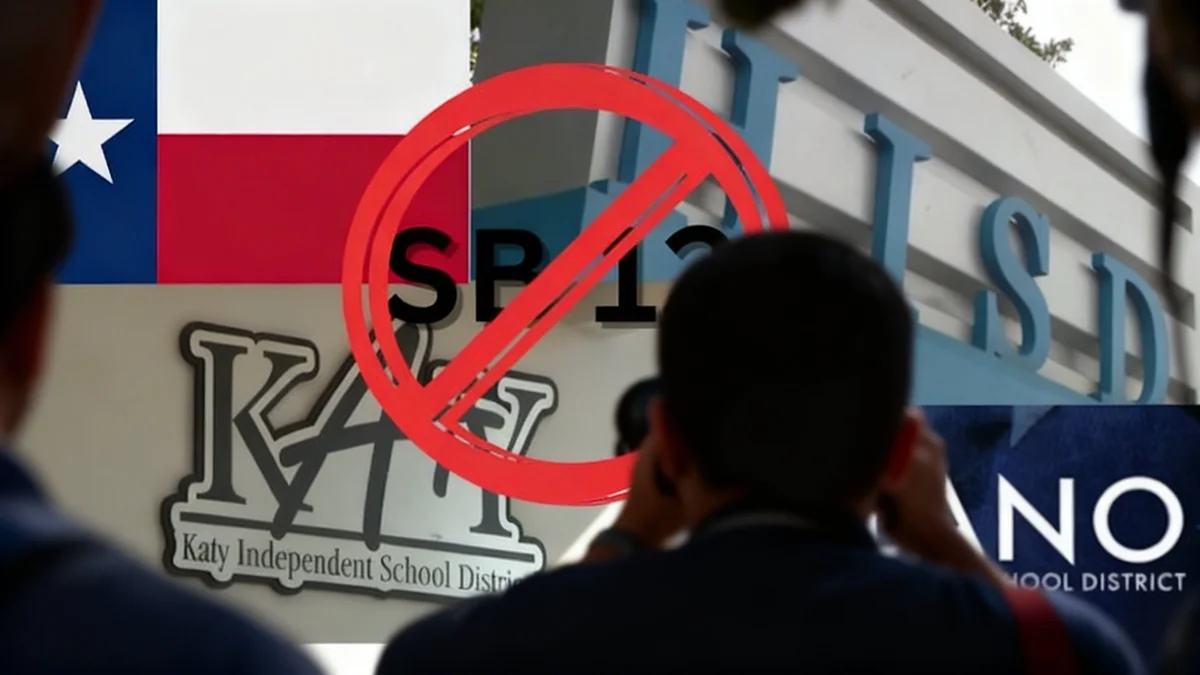Four long-serving Black educators have filed a federal lawsuit against the Fayette County School Board in Tennessee, alleging a systemic pattern of racial discrimination. The plaintiffs, who collectively have nearly 80 years of experience with the district, claim they were unfairly demoted to lower-paying positions after raising concerns about administrative changes and what they describe as unethical actions by board members.
Key Takeaways
- Four Black administrators and educators filed a lawsuit against the Fayette County School Board, citing racial discrimination.
- The plaintiffs claim they were demoted without justification, resulting in significant salary reductions totaling over $57,000 annually.
- Allegations include retaliation for questioning school board actions and a lack of legitimate business reasons for the demotions.
- The lawsuit seeks a total of $1.9 million in compensatory damages for lost wages, emotional distress, and other losses.
Allegations of Unjust Demotions and Retaliation
A group of four experienced Black educators is taking legal action against the Fayette County Board of Education, claiming they were targeted with demotions and substantial pay cuts as part of a discriminatory practice. The lawsuit, filed in federal court, details a series of personnel changes that the plaintiffs argue were arbitrary and retaliatory.
The educators, including a central office director, a high school principal, a transportation director, and a counseling coordinator, contend that their careers were derailed without cause. According to legal documents, the demotions occurred after they challenged proposed organizational shifts and what they perceived as improper conduct by school board officials.
Attorneys for the group argue that the school board's actions lacked any "legitimate business justification." The lawsuit seeks not only to recover lost wages and benefits but also to compensate for the emotional and professional harm the educators say they have endured.
The Plaintiffs' Stories
Each of the four plaintiffs describes a sudden and unexpected change in their employment status, which they believe was a direct result of their race and their willingness to question authority. Their combined experience in the district totals 81 years, making the abrupt demotions particularly notable.
Dr. Towanda Maclin-Brown
Dr. Towanda Maclin-Brown, a 25-year veteran of Fayette County Schools, served as the Central Director of the Innovation Office. She states in the lawsuit that after she voiced concerns about rumored changes to the district's structure, she was reassigned to an assistant principal position. This move came with a significant financial impact.
Salary Impact: Dr. Maclin-Brown's demotion resulted in an annual salary reduction of approximately $20,000, the largest individual loss among the plaintiffs.
Dr. Brian Cunningham
With 16 years of experience in the district, Dr. Brian Cunningham was a high school principal. He alleges he was demoted to an elementary school assistant principal role, a significant change in responsibility and prestige. He claims he was not privately informed of the decision before it was made public.
"I didn't learn of the demotion until the school board publicly announced it during a district-wide in-service session on July 30," Dr. Cunningham stated in the complaint, highlighting the public nature of the professional setback.
His salary was reduced by about $13,000 per year as a result of the reassignment.
Bobby Champion
Bobby Champion, the district's Transportation Director for 21 years, asserts that his demotion was a direct consequence of his actions. He claims to have "engaged in protected conduct by challenging School Board members on their illegal and unethical actions targeting experienced Black administrators and educators."
Following this, Champion was demoted to shop foreman. He reportedly learned of his new, lower-ranking position from a colleague who was encouraged to apply for his former job. This demotion cut his annual salary by $12,000. Months later, he was placed on administrative leave while the district investigated alleged "irregular practices" in his department.
Marquette Yates
Marquette Yates, with 19 years of service, worked as the District School Counseling Coordinator. She was demoted to a school counselor position, which also resulted in a $12,000 annual salary reduction. Like the others, she claims the move was made without proper justification.
Understanding Employment Discrimination Law
Employment discrimination lawsuits often hinge on Title VII of the Civil Rights Act of 1964, which prohibits employers from discriminating against employees based on race, color, religion, sex, or national origin. Plaintiffs typically must demonstrate that they are part of a protected class, were subjected to an adverse employment action (like a demotion), and that the action was taken under circumstances that suggest a discriminatory motive. Retaliation for opposing discriminatory practices is also prohibited under the law.
Legal Claims and Demands for Compensation
The lawsuit presents a united front, arguing that the Fayette County School Board engaged in a "pattern and practice of discrimination against Black teachers and administrators." The plaintiffs are seeking substantial financial compensation for the damages they claim to have suffered.
The total amount requested is $1,900,000. This figure is intended to cover a wide range of losses, including:
- Lost wages and benefits
- Other economic losses
- Emotional pain and suffering
- Inconvenience and mental anguish
- Loss of enjoyment of life
The core of their legal argument is that the school district cannot provide a valid, non-discriminatory reason for the demotions. By linking the adverse actions to their challenges against the board and their status as Black administrators, the plaintiffs aim to prove that the district's motives were unlawful.
Potential Impact on Fayette County Schools
This lawsuit raises significant questions for the Fayette County school district. Allegations of systemic racial discrimination can damage a school system's reputation, affect staff morale, and create distrust within the community it serves. If the court finds in favor of the plaintiffs, the financial penalty could be substantial, potentially impacting the district's budget.
Beyond the financial implications, the case will likely bring intense scrutiny to the school board's hiring, promotion, and administrative practices. The proceedings may reveal details about the board's decision-making processes and its handling of internal dissent. The outcome could set a precedent for how personnel changes are managed within the district and influence future policies regarding employee protections and administrative oversight.
The Fayette County Board of Education has not yet issued a public statement in response to the lawsuit. The case will now move through the federal court system, where both sides will present evidence to support their claims.





